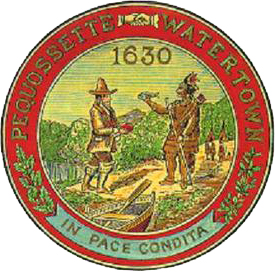
Watertown officials will request special legislation to be approved that would allow the City to charge a fee to new commercial developments with the money going to a fund to create affordable housing.
The City seeks what is known as a linkage fee, which is based on the impact of commercial development on the demand for affordable housing, acting Deputy City Manager Steve Magoon told the City Council on Tuesday. The special legislation will have to be approved by the State Legislature.
“Non-residential projects are creating demand for affordable housing for people who work in Watertown,” Magoon said. “We have done a study to look at that impact and adjusted it by the nexus between that demand being created by projects and the cost that it represents to us as a municipality, and a fee that would be charged.”
The proposed legislation limits the initial fee so it does not exceed $18 per square foot, but it may be adjusted over time based on the U.S. Bureau of Labor Statistics’ Consumer Price Index for All Urban Consumers.
“It would be reviewed at least every five years by both the City Council and the City Manager, with the Manager making recommendations to the City Council on any recommended changes both for square footage or the fee,” Magoon said.
Watertown officials studied similar agreements in other communities when setting the fee limit.
“I think that we want to be careful that we set a fee that is at a level that would not put us at a significant disadvantage in terms of economic development and projects in the region,” Magoon said. “We want to put Watertown in a position where it is still competitive and where people want to do business.”
If the Legislature approves the proposed special legislation, the City Council will then consider the ordinance and set the final fee, Magoon said. Allowing a fee higher than $18 could hurt the chances of the success of the proposed legislation before the end of the Legislative session at the end of July.
“If we do go higher, then I think it would cause consternation and concern among some legislative members and likely not be acted upon in a timely manner,” Magoon said. “And if it gets past July it will likely be another year to be able to get that acted upon.”
The money would go into a revolving fund that would be administered by the Board of Trustees of the Municipal Affordable Housing Trust.
City Councilor John Gannon asked why create a new revolving fund, and instead just have the fees go into the Watertown Municipal Affordable Housing Trust Fund.
Council Vice President Vincent Piccirilli said he believes having a separate revolving fund allows for more transparency for how much money comes in and how it is spent. Also, the money in the Municipal Affordable Housing Trust Fund can be spent on a variety of kinds of housing, such as for seniors or the disabled. While the fees from the developments are targeted for housing for employees.
An amendment that would have put the funds from the fees into the Affordable Housing Trust Fund was defeated unanimously. Then the Council unanimously approved submitting the proposed special legislation to the State Legislature.
See the resolution and special legislation passed by the City Council by clicking here.